



The Karnataka Tele-MANAS helpline, part of India’s National Tele Mental Health Programme, has seen a dramatic rise in calls, especially from rural areas, reflecting growing mental health awareness and the increasing burden of psychological issues outside cities. The service provides 24/7 counselling, addressing concerns ranging from anxiety and depression to stress and interpersonal problems, while bridging gaps in accessibility and affordability. Community outreach through ASHA workers and Manochaitanya camps has been crucial in connecting people to these services, highlighting the evolving landscape of mental health care in both rural and urban settings.
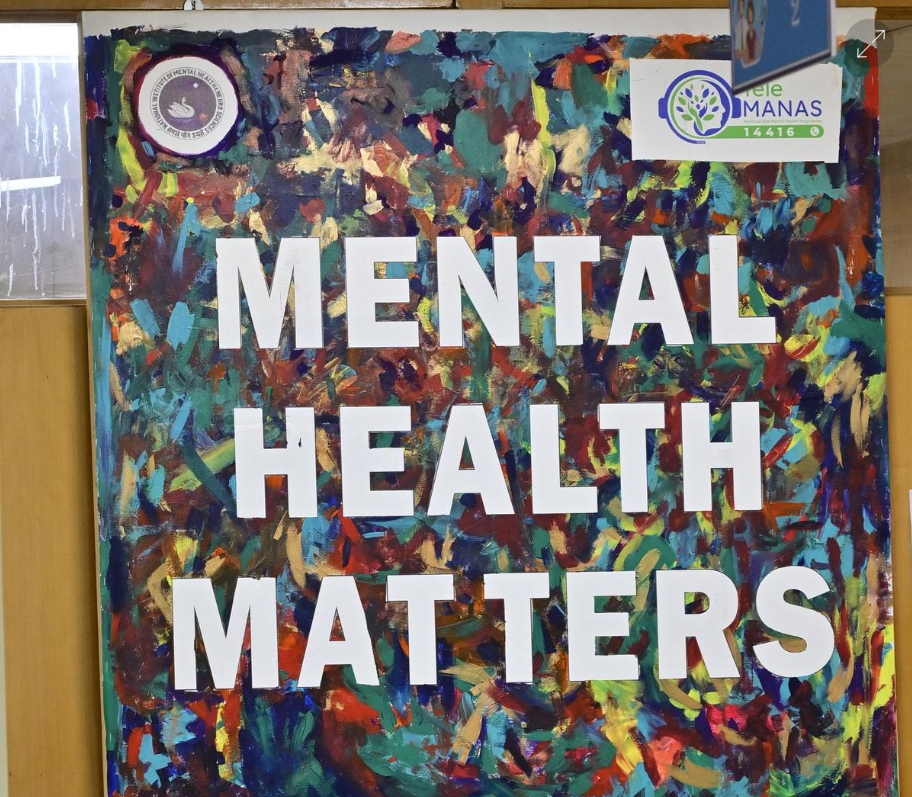
Copyright infringement not intended
Picture Courtesy: The Hindu
Karnataka Tele-MANAS cell under the National Tele Mental Health Programme has experienced a nearly 60-fold increase in calls. Rural callers now make up 68% of the total, reflecting rising awareness and growing mental health needs outside urban centers. Urban callers account for 32% of calls.
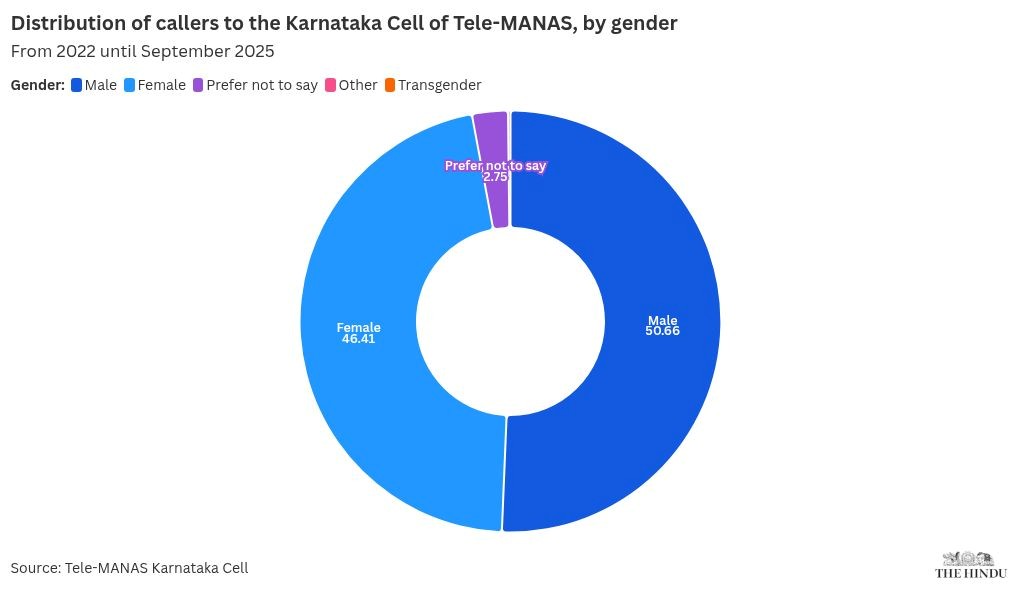
Picture Courtesy: The Hindu
Mental health issues are conditions that affect a person’s thinking, feeling, behavior, or mood, often interfering with daily life. They can range from mild stress and anxiety to severe conditions like depression, bipolar disorder, or schizophrenia.
Common signs include:
Causes: Mental health issues can result from a combination of factors such as genetics, trauma, stress, social isolation, or physical illness.
Tele-MANAS is a telephonic mental health support service in India, part of the National Tele Mental Health Programme. It provides free, confidential counseling for people facing mental health challenges.
Key features:
Purpose: To make mental health services accessible, affordable, and stigma-free, especially in areas where professional help is limited.

Picture Courtesy: PIB
|
Period |
Program / Initiative |
Focus / Features |
Impact / Notes |
|
Pre-1980s |
Institutional Care |
Psychiatric hospitals and asylums |
Limited rural access; awareness low |
|
1982 |
National Mental Health Programme (NMHP) |
Integrate mental health into general healthcare; community-level care |
Pilot District Mental Health Programs (DMHP) started |
|
1996 onwards |
District Mental Health Programme (DMHP) |
Community-based care in districts; training of primary health workers; psycho-social support |
Expanded services to rural & semi-urban populations |
|
2022 |
Tele-MANAS (National Tele Mental Health Programme) |
24/7 tele-counseling; referrals to psychiatrists; rural outreach via ASHA workers |
Karnataka: 68% calls from rural areas; rising awareness & access |
|
2023–Present |
Recent Innovations |
Manochaitanya camps; AI support tools; culturally sensitive counseling |
Focus on reducing stigma, improving accessibility, early intervention |
Rural vs. Urban Awareness
Age-wise Trends
Gender-specific Concerns
Rural Mental Health Challenges
Urban Mental Health Challenges
Role of Technology
|
Initiative |
Launch/Year |
Objective |
Coverage / Reach |
Key Features / Services |
Source |
|
Tele-MANAS (National Tele Mental Health Programme) |
2022 |
24×7 mental health support via phone and online |
All 36 States & UTs |
Helpline, video consultations, e-prescriptions, follow-ups, multilingual (20 languages) |
NewsOnAir |
|
National Mental Health Programme (NMHP) |
1982 |
Integrate mental health into primary care |
Nationwide |
Training health professionals, community-based care, District Mental Health Programs (DMHPs) |
DGHS |
|
School & Youth Initiatives |
Ongoing |
Early intervention and awareness among students |
Schools, colleges |
Counselling, awareness on substance abuse, responsible digital habits |
Times of India |
|
Manochaitanya Camps |
Ongoing |
Community-level mental health awareness & support |
Taluk hospitals in Karnataka |
Monthly counselling camps, connecting families to Tele-MANAS |
NIMHANS Reports |
|
ASHA Worker Outreach |
Ongoing |
Promote mental health awareness in rural areas |
Rural communities |
Household visits, counselling awareness, connecting patients to services |
NIMHANS Reports |
Source: The Hindu
|
Practice question Q. Discuss the evolution of mental health services in India, highlighting the role of Tele-MANAS and community-level initiatives. How do rural and urban mental health needs differ, and what strategies can be implemented to address these differences? (250 words) |
Tele-MANAS is a 24/7 mental health helpline under the National Tele Mental Health Programme, providing counselling, guidance, and referral services across India, including Karnataka.
Anyone experiencing mental health concerns—adults, adolescents, urban or rural residents—can access support free of cost.
Calls grew nearly 60-fold since 2022: from 1,204 in 2022 → 70,260 in 2025. Around 68% of calls now come from rural areas.
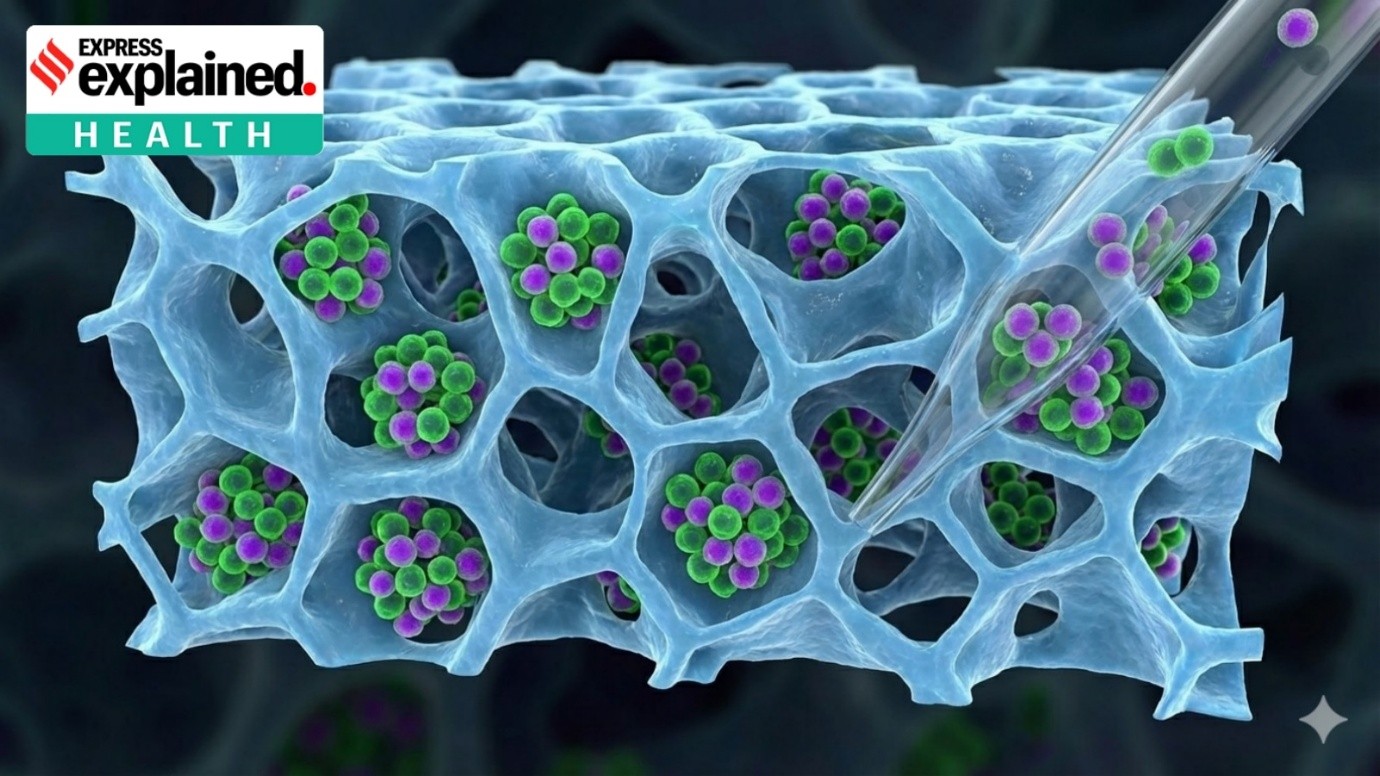
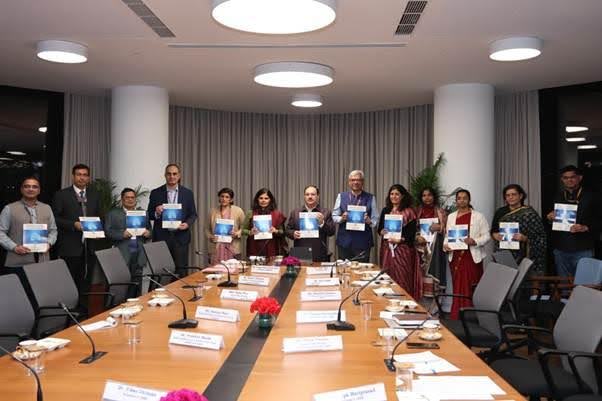
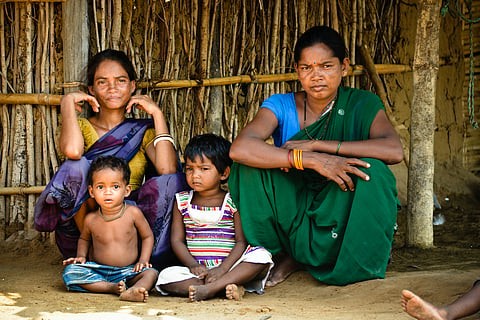

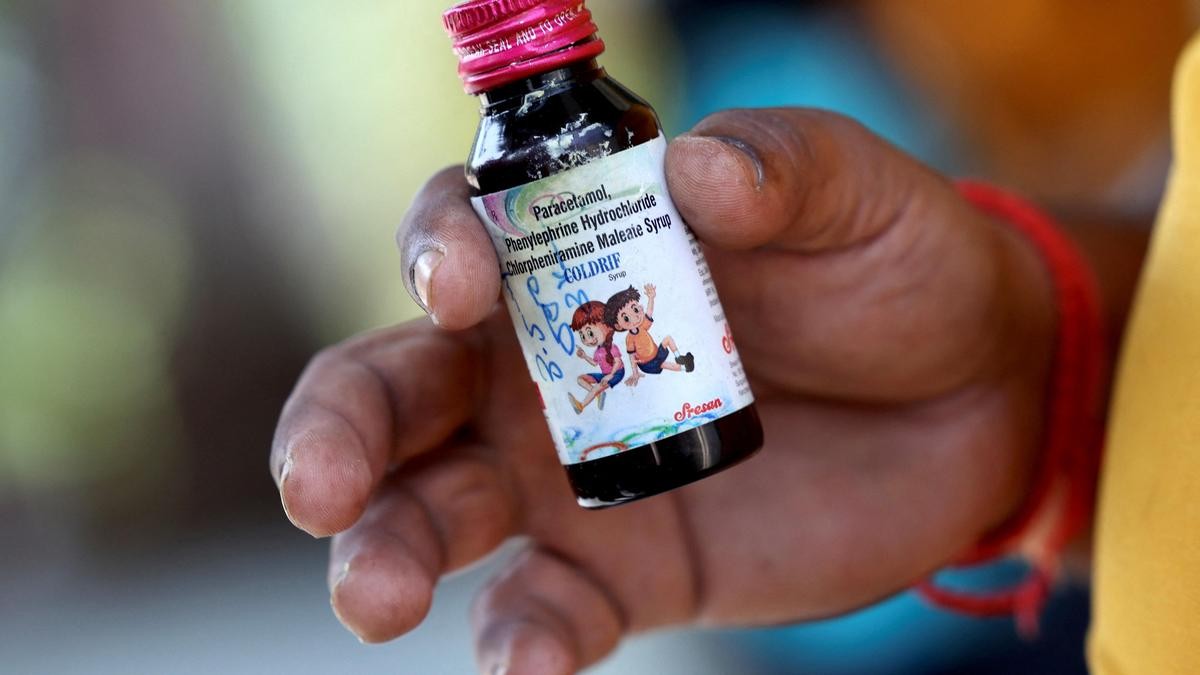


© 2026 iasgyan. All right reserved